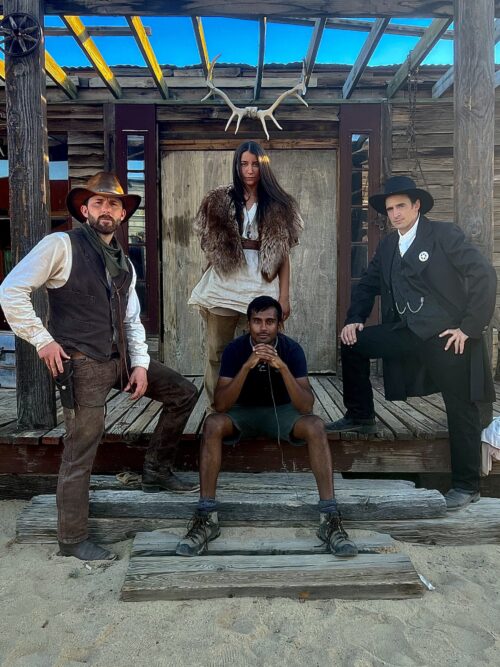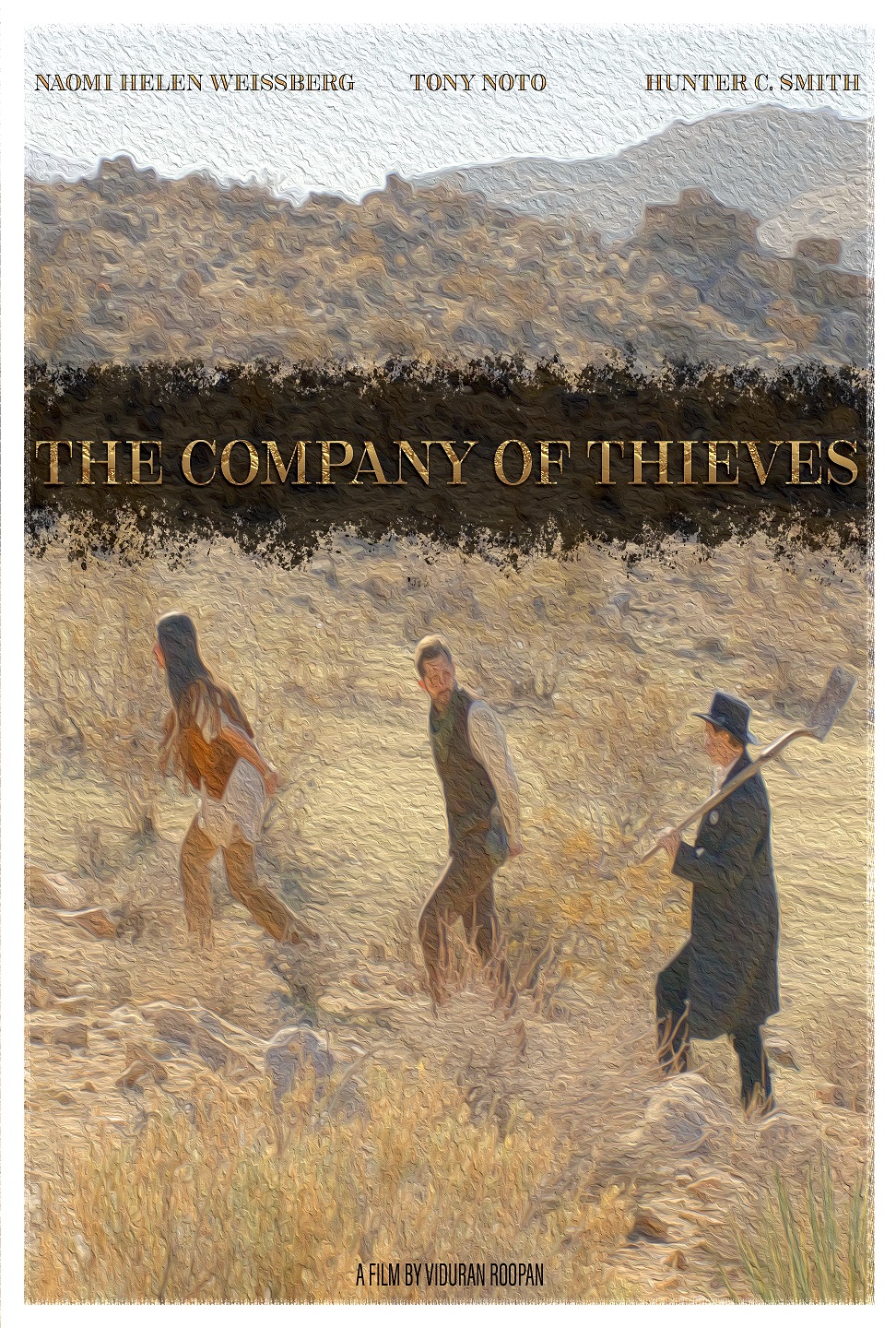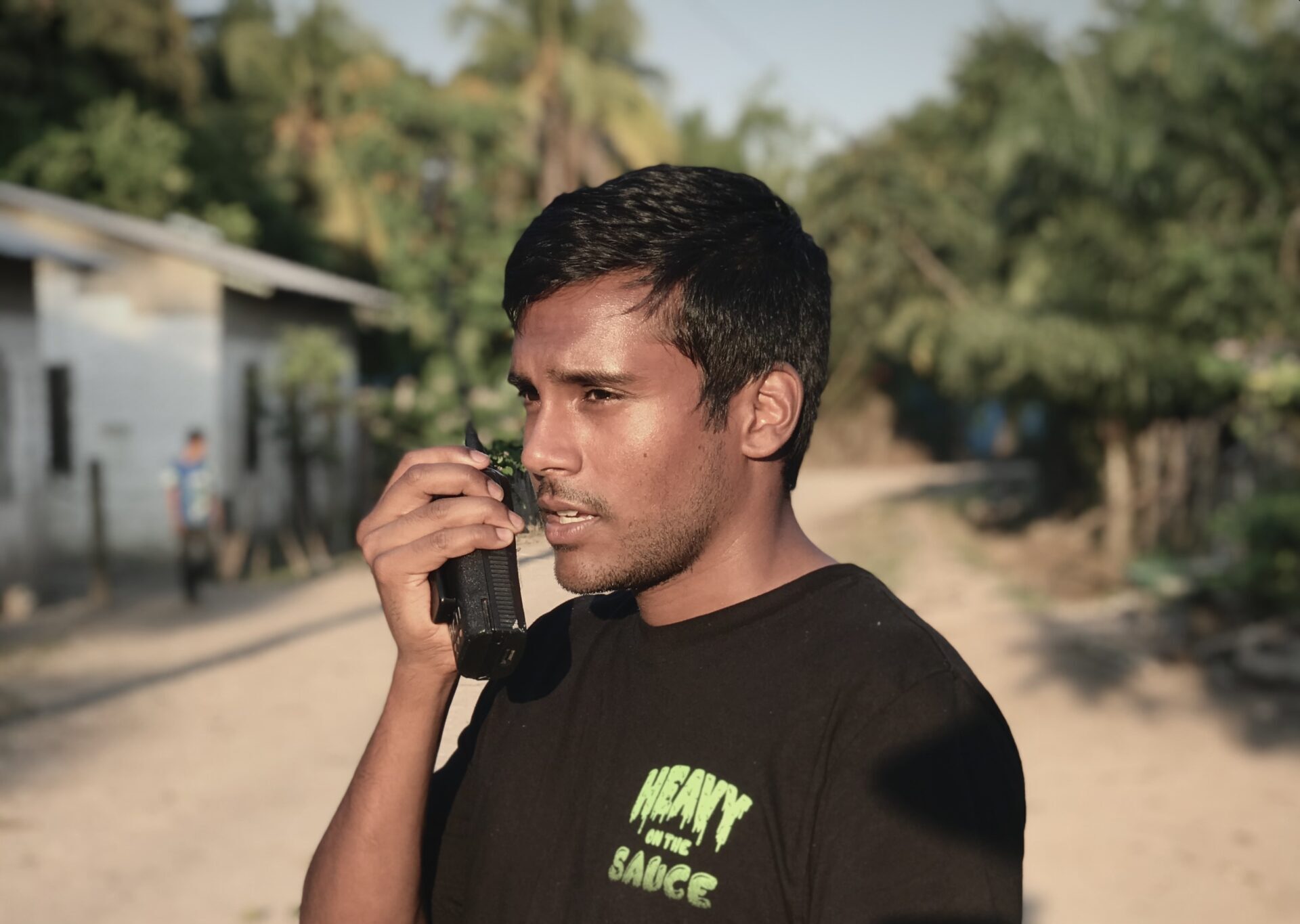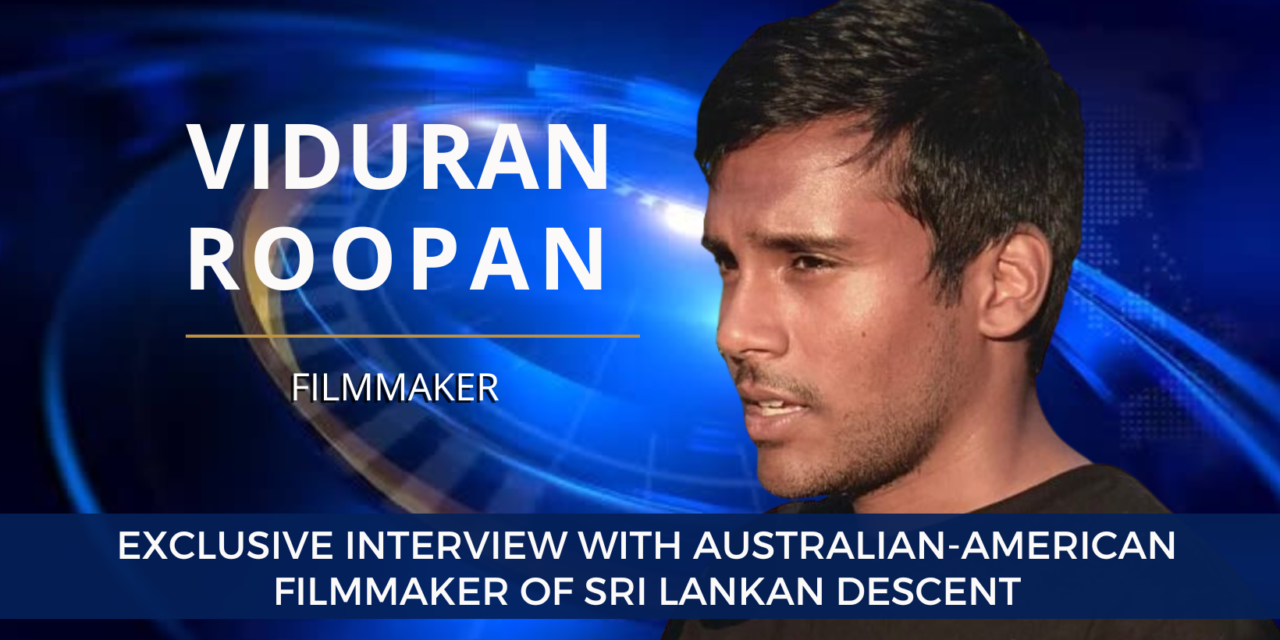Australian-American filmmaker of Sri Lankan descent, Viduran Roopan, is a rising star in the world of filmmaking. His first feature film, a revisionist Western titled The Company of Thieves, will premiere on the festival circuit later this year.

With over a decade of experience in the entertainment industry, Roopan has worked primarily as a producer of documentary programming and reality television, including the series Growing Up Hip Hop (WE TV) and The Fixers.
He has also worked in the production of feature films, commercials and music videos, as well as in live events and broadcast journalism. While producer has been his main role, he has worn many hats including those of cinematographer, editor, and production manager/coordinator. Currently, Roopan works in the Virtual Production/VFX space with a focus on the research and development of emerging LED volume technology and in-camera VFX. He uses this technology to drive the narrative forward in new and visually striking ways in his current projects.
A graduate from the University of Georgia in communication studies and new media, he honed his craft over the years as a filmmaker and content creator, producing a wide range of short films, music videos, corporate videos, commercials, and docu-series. Currently, he has three completed feature length scripts in the works and treatments for additional features, scripted TV series, and shorts. He founded En Trance Films in 2022.
What is your background in film?
I did not attend film school, but I began focusing on media related studies and creating short film/video projects during my senior year of college. I started my career as a freelance videographer and production assistant, following a brief stint in broadcast journalism. At first, I was interested more in cinematography but gradually moved toward producing and directing. I have been writing creatively since childhood, however.
You are an Australian-American, of Sri Lankan descent. How does your multicultural background influence your artistic endeavors?
People from my background don’t often pursue a career in the arts. I think it’s important to make sure voices and perspectives like ours are heard and shared in this field, and hope that my own creative pursuits encourage others like me, in theirs. I also believe the more diverse and colorful our experiences, the better the art we create can be and the more people it can impact. I hope the stories I am able to share can be both enlightening and relatable to domestic and international audiences.
What advice would you give to a first time filmmaker?
Find the right team. Much can be accomplished alone, but it’s a remarkably better experience when you have a support system that is just as enthusiastic and dedicated as you are. If you’re really fortunate, the crew you start building early on will remain with you for your entire career and you can learn, grow, and excel together. There’s no replacement for people you can trust and who care deeply about the work you’re doing.
Who are some of your favorite directors and why?
Danny Boyle, Wes Anderson, Paul Thomas Anderson, Quentin Tarantino, Christopher Nolan, Greta Gerwig and Aaron Sorkin because of the emphasis they all place on writing and powerful, witty dialogue, as well as the performances they’re able to get from their cast. They seem to foster an incredible chemistry between their casts and crews. Steven Soderbergh, Adam McKay, Damien Chazelle and Guy Ritchie because I love the smooth and suave style of their films and the pacing created. For McKay and Ritchie in particular, I’m a huge fan of their senses of humor. David Fincher, Denis Villeneuve, Alex Garland, and Robert Eggers for their surrealism, psychological themes, and the way they build tension in their films and tackle taboo subject matters.
The Company of Thieves (TCOT) is described as a ‘revisionist Western’. What attracted you to this specific genre of film?
The idea to write a Western first arose while I was at the office. We were working on some content that involved an Unreal Engine virtual environment that used an Old West Saloon as the setting. It occurred to me that there aren’t too many films in our budget-tier that utilize the genre, and it appealed to me more than making an arthouse, slice of life or horror film. I really wanted my first film to be something unconventional and uncommon. I’ve also always been drawn to period and historical films and it felt like something in the Western genre could be realistically achieved with the resources I had available.
Specifically, the revisionist Western allowed me to craft a narrative around modern themes that were important to me that may not always be present in traditional Westerns. I’ve personally enjoyed the resurgence of other revisionist and neo-Western films/TV series in recent years, so it seemed like there was a significant market for these stories as well.

How did you go about casting the film?
It was a multi-faceted process. Most of the cast members were referred to me by colleagues or were people I had worked with in the past. Some through online casting groups and some through talent agents and managers.
What were some of the biggest challenges you faced in the making of TCOT?
Weather and scheduling. While selecting the Sierra Nevada’s and Lake Tahoe as the setting provided us with amazing production value for a modest price, it regularly exposed us to the elements. Coincidentally, the Fall of 2022 and Spring of 2023 saw some of the heaviest rains California experienced in many years. All told, we worked through the blistering cold, torrential downpours, hail, snow, and the sweltering desert heat. Even had to make last-minute location changes to escape the smoke from a forest fire. Scheduling was also challenging because I was maintaining a full-time job throughout production and needed to work on the film primarily on weekends. This was complicated further by the availability of the cast and crew, who also had other commitments. In total, we had 21 shoot days spread out over about seven months.
AI and Virtual Production/VFX technology play a role in your film. It’s quite a controversial topic these days. How do you think these technologies can be used in a positive way to benefit the industry?
Ultimately, these are tools for artists to use and I do disagree with them being used without the involvement of artists. But much like digital was to film or CGI was to hand-drawn animation, it can be a stylistic preference and can help make our workflows more efficient, if we so choose. This is an industry that has always been driven by, and inspires technological advancements, so I would implore all creators to at least learn how to use them. I think the threat of being replaced by this technology can in part be remediated if we remain essential in employing its use effectively. In this way, we can continue to preserve the human component in the filmmaking process.
Additionally, things like virtual production and in-camera visual effects can open up a new world of creative possibilities that would’ve been inconceivable before. Many of the tools are open source or relatively inexpensive as well. We should be taking advantage of this to evolve as artists and make sure our skill sets don’t become obsolete. It’s a great opportunity to let our imaginations run wild and do things that have never been done before.
What are your hopes/plans for the film?
To begin with, I’m hoping and planning for a successful festival run. With any luck, I will be able to find a distributor through this process and maybe even turn a profit. At the very least, I hope to find a home for it on an online platform and draw more attention to my production company. I will consider this film a resounding success if it can open some doors for me as a filmmaker and allow me to make my next film.
Do you have any other projects in the works?
I currently have two other completed feature-length scripts and several treatments for additional features, TV series and documentaries. However, these vary greatly in scale and will likely remain shelved until I have the backing to make them a reality. As soon as I’ve wrapped post-production on The Company of Thieves, I will begin developing one of these treatments that is part of a series of projects that can be done with a smaller budget. I am greatly looking forward to getting back to writing another feature and hope this will be the next one I am able to direct.
https://www.facebook.com/official.the.company.of.thieves
https://www.instagram.com/thecompanyofthieves





